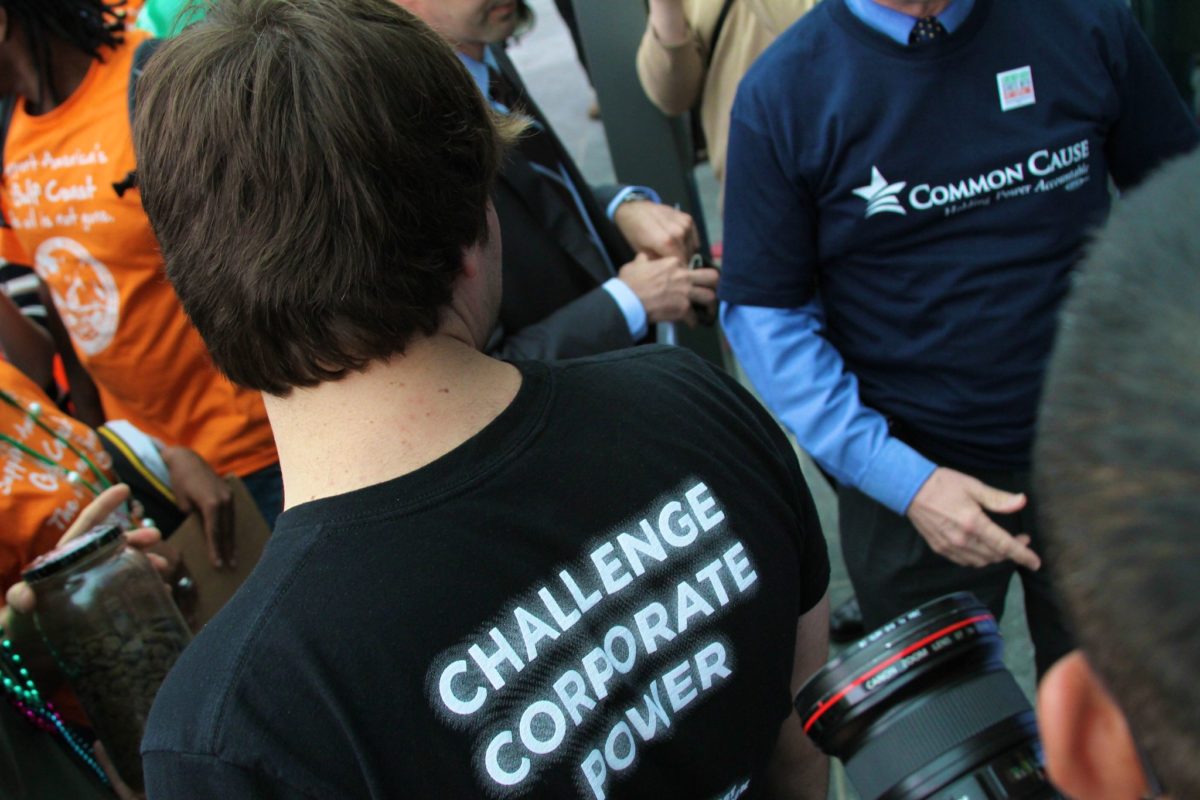CIDSE followed the negotiations for a Binding Treaty on transnational corporations and other business enterprises at the 7th session in Geneva from 25 to 29 October 2021. Read the press release below:
This year saw a substantive change of pace in the Human Rights Council’s negotiations for a legally binding instrument to regulate the activities of transnational corporations and other business enterprises. The negotiations took place in person for the first time since the beginning of the COVID-19 pandemic. For the first time, states engaged in robust and detailed line-by-line discussion on the provisions of the third revised draft while limiting general comments and declarations.
CIDSE and its member organizations commend the Ecuadorian Chairmanship for organising a negotiation session that was well participated by states and civil society alike. “State’s engagement shows the third revised draft can make a real difference for communities affected by corporate abuse”, said Elise Kervyn, Senior Advisor at CIDSE. “Business activities often pose a major threat to workers, indigenous peoples, and ecosystems. They are the main engine of climate change and there is no way out of the multiple crises we face without strong rules for corporations”, added.
We look forward to the constitution of the group of Friends of the Chair, as announced by the Chairman Rapporteur. We want to recall that any future work on the text should be transparent, open, and regularly and meaningfully involving civil society organization.
We also commend the vital and constructive interventions of the delegates from Palestine, Panama, Cameroon, and Namibia. Their engagement shows that consensus can be built around progressive provisions to ensure prevention, redress, and justice. On the other hand, the Brazilian, Chinese, Iranian, and Russian delegations’ interventions have been consistently undermining the spirit of the negotiations and the working group’s mandate.
The US joined the negotiations for the first time, calling for alternative approaches through “binding or non-binding” instruments. Such posture reveals the lack of consideration for the negotiations – led by states, affected communities, and social movements for seven years. The US argued multiple times that the text was ‘too prescriptive’ but did not provide any concrete suggestion to improve it. While they lament prescription, we welcome clarity, guidance, and precision.
In its opening statement, the EU delegation affirmed its commitment to human rights and the environment and the need for consensual approaches – yet, it fell short of concretely participating in discussions and supporting in building consensus. Remarkably, the EU delegates, for the first time, suggested changes in the text to safeguard important provisions on human rights defenders, gender, and the environment. However, this is far from enough. CIDSE and its members have urged the EU and its member states to get a mandate to participate in the negotiations for the past seven years. We reiterate this call. The European Commission’s proposal on sustainable corporate governance, expected in the next weeks, cannot be used as an excuse for not engaging at the global level.
CIDSE and its members took the floor to support the process and advance concrete textual suggestions during the negotiations. Together with our members, allies, and partners, we brought testimonies from West Africa and Guatemala on corporations’ impact on local communities and territories.
As Rita Uwaka, from Friends of the Earth Nigeria, puts it when speaking about land grabbing: “If this treaty can offer real provisions for redress, then real justice can be ensured”. CIDSE takes that message seriously and will continue advocating for an international instrument that can make a genuine difference for our human family and common home.

